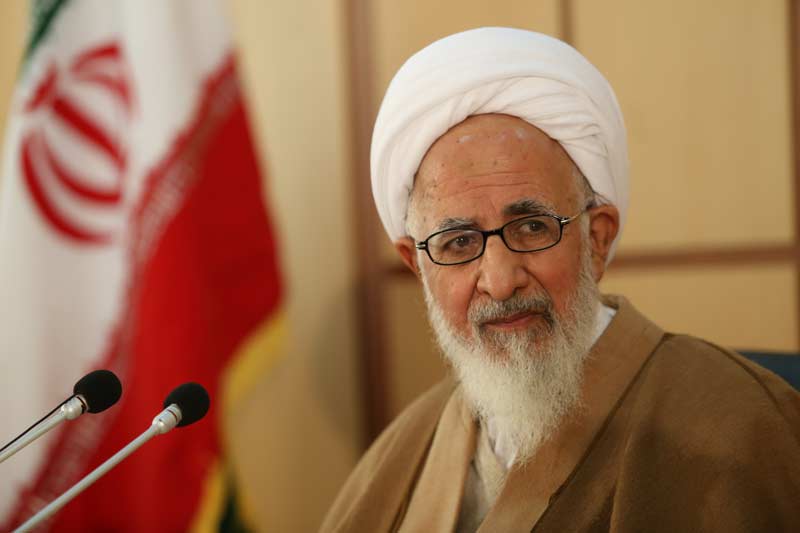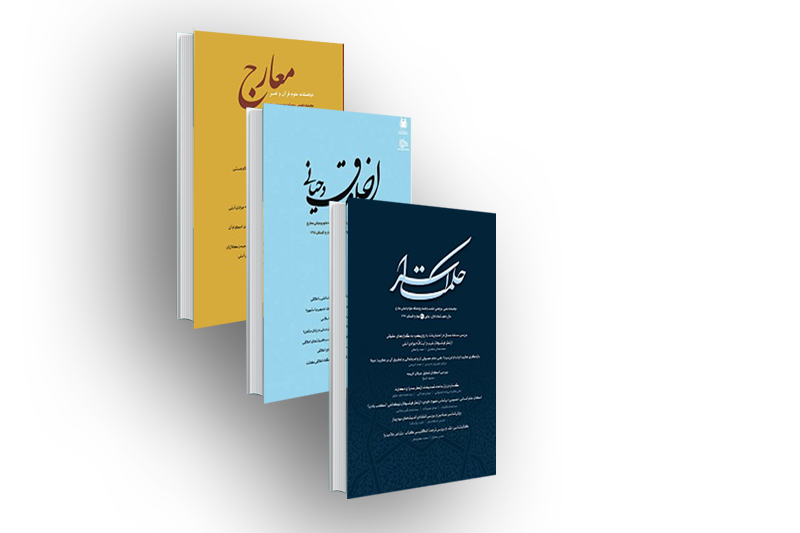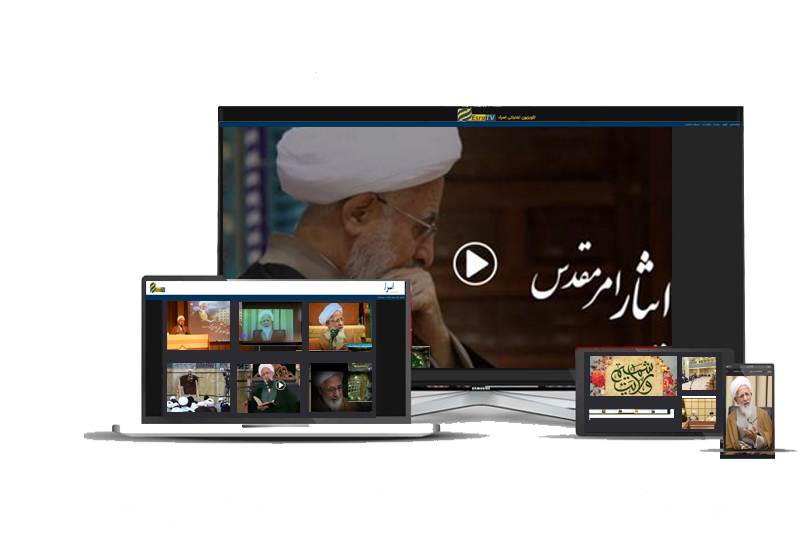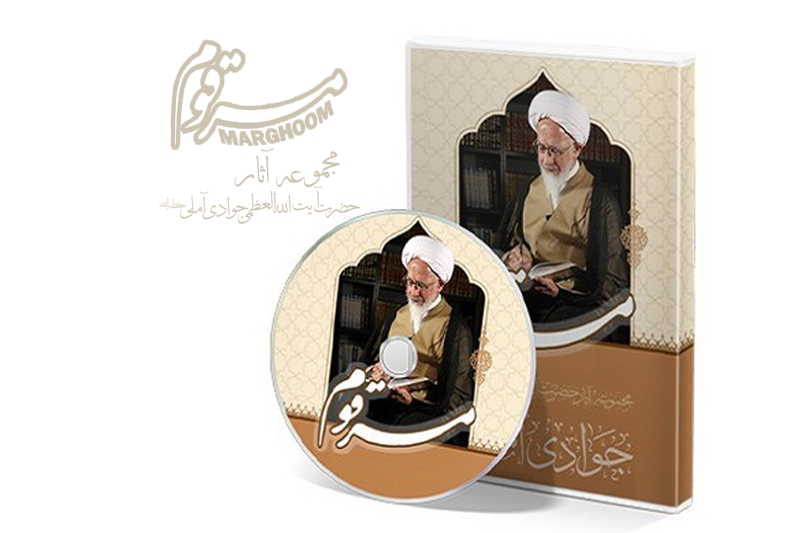In tke Name oJ ªllak, tke ªll-keneJscent, tke ªll-me/csJul, and J/om Hsm do se see§ kelp.
Perpetual praises are due to God all-immaculate; salutations without end are in order upon God’s holy prophets—particularly his Eminence, the Seal of Prophethood (The Blessings and Peace of Allah be upon him and his Progeny); boundless benedictions are owing upon the immaculate and purified Family—especially his Eminence, the Seal of Sainthood, the extant and promised Mahdī (May Allah hasten his noble deliverance). We wish to near ourselves in friendship to these sacred souls and distance ourselves from their nefarious foes.
We would like to honour the presence of the respected Ụujjāj and esteemed mu’tams/sn who have converged on the divine precincts from lands far and near; and we would like to ask Allah to grant one and all total success in performing a Íajj and ÝUmrah that is accepted, a pilgrimage that is approved, and prayers that are answered. We would furthermore like to request from Allah that He give success to the important host country of Arabia in maintaining balanced interactions with natives and visitors and between Arabs and non-Arabs.
Even though the beauty of the Íajj and the majesty of the ÝUmrah, as well as the magnificence of the great congress that constitutes God’s yearly invitation is beyond description and the need for a ‘message’, nevertheless some useful points are in order so as to make this international program more beneficial.
First: God has made the KaÝbah—which is the qsklak of the world’s Muslims and the place of their circumambulation—to be source of sustentation for people in the face of the intellectual ignorance and practical caprice of the wrongdoers:
٭٭٭
God has made the Ka‘bah, the Sacred House, sustentation for mankind. (5:D7)
As the KaÝbah was built by two of God’s prophets and according to His instructions, and because it is the first monotheistic place of worship on the earth, it can be the central source of sustentation for the monotheistic community in the face of both deviance and polytheism, as well as the centre of resistance in contending with any type of rebellion and oppression. While it is true that God has mandated local and regional gatherings in which cogitative sustentations and intellectual uprisings are limited to a certain locale and period by saying, for example:
`
٭٭٭
Say, ‘I give you just a single advice: that you rise up for Allah’s sake, in twos, or individually, and then reflect: there is no madness in your companion; he is just a warner to you before [the befalling of] a severe punishment.’ (34:46)
Nevertheless He has made the global gathering and all-out sustentation in the sacred place of revelation obligatory. This is because an individual sustentation does not have the same effect as does a collective one—in the same manner as a Òalak recited alone is not as effectual as one that is recited in congregation. Allah says in the QurÞÁn:
ﻟَﺎ ﯾَﺰَالُ اﻟﺪﱢﯾﻦُ ﻗَﺎﺋِﻤﺎً ﻣَﺎ ﻗَﺎﻣَﺖِ اﻟْﮑَﻌْﺒَﺔُ
Religion will withstand so long as the KaÝbah stands.
The “standing” of the KaÝbah is tantamount to it being established as the Qiblah of the Muslims and to it being the place of perennial circumambulation. And these two functions are fully realized by the special custodians and friends of God.
٭٭٭
Its custodians are only the Godwary… (8:34)
In the time of JÁhiliyyah and during the period of spiritual relapse, the dust of ignorance and heresy had come to settle on the crust of human nature; the dross of sin tainted the purity of the soul, leading it to entertain desires that were based on pure fantasy and imagination, on the plane of the intellect, and extreme lust and anger, on the plane of the will. The consequence of such intellectual ignorance and practical caprice was that the most preeminent place of monotheistic worship became the most official pantheon of idolatry. Even the two monotheistic prophets, Abraham the §kalsl and Ishmael the dkaksỤ—who
carried the standard of monotheistic worship in one hand and the mighty idol-breaking axe in the other; whose shining record of deeds includes the verse, “So he broke them into pieces, all except the biggest of them”3 ; and who would always have at the tip of their tongues the bold and manly statement, “Fie on you and what you worship besides Allah!”4—were cast into idol-like forms in which divination arrows used in gambling were placed in their axe-holding hands! This is according to the narration from MuṆammad ibn al-ÞAthīr Juzrī in (ams’ al-uÒÙl Js aỤādstk al-RasÙl on the authority of ÝAbdullÁh ibn ÝAbbÁs who said that: “When the Messenger of Allah arrived [in Mecca], he refused to enter the KaÝbah while there were idols in it. So he ordered that they be taken out. The pictures of the (prophets) Abraham and Ishmael, holding arrows of divination in their hands, were carried out. The Messenger of Allah said, ‘May Allah destroy them (i.e. the musk/s§sn) for by God, they knew very well that they (i.e. Abraham and Ishmael) never drew lots by these (divination arrows)!’ Then the Messenger of Allah entered the KaÝbah and said, ‘ªllaku ª§ka/' in all its directions and did not pray therein.” Recorded by BukhÁrī.
In light of the fact that the beacon of Islam beckons humanity towards a tasỤsds world- view full of wisdom, a religious world-management that makes to flourish, and a sacred world-aesthetic that expresses sapience, it is only through Muslim unity that the nefarious plots of any self-styled Abraha6 who harbours delusions of insulting the QurÞÁn and violating the sacrosanctity of the Seal of the prophets (The Blessings and Peace of Allah be upon him and his Progeny) can be exposed and diffused. The most opportune time for this is during the global rites of the Íajj in which, by way of the coordination of all monotheists, any and all types of deviant thoughts and actions can be eradicated.
Third: The opposition between truth and falsehood, the contrast between good and evil, the juxtaposition of beauty and ugliness, the disassociation of tasỤsd from sks/§ and finally the immaculateness of the sacred from the profane is of such an extent that faith can never come together with even a speck of disbelief—this is because the result of the sum of beauty and ugliness is ugliness just as the aggregate of the acceptance of truth and its rejection amounts to its rejection. This matter is that very same sublime tasỤsds point that the noble QurÞÁn alludes to in this way:
٭٭٭
…so worship Allah, putting exclusive faith in Him. Look! [Only] exclusive faith is worthy of Allah… (3D:2-3)
The inheritors of prophet Abraham (upon whom be Peace) have an important mission to accomplish and that is to protect the Talbiyyah from the defilement of modern JÁhiliyyah. In the ancient JÁhiliyyah, sks/§ openly and blatantly encroached upon the sanctuary of tasỤsd and became collateral with something that is in reality far beyond it. This can be
Abraha was the king from Yemen who sought to destroy the KaÝbah with an army of elephants but was defeated by a miraculous intervention from the Lord of the KaÝbah. SÙrat al-Fīl (number 105) of the QurÝÁn refers to the incident.
seen by that fact that the musk/s§sn of the ÍijÁz would chant the following during the Talbiyyah of the Íajj:
ﻟﺒﯿﻚ ﻻ ﺷﺮﯾﻚَ ﻟَﻚ اﻻّ ﺷﺮﯾﮑﺎً هﻮ ﻟَﻚ ﺗَﻤﻠِﮑُﻪُ و ﻣﺎ ﻣَﻠَﻚ
Here I am at Your service. There is no partner with You except the partner that You own; You own him and all that he owns.7
They would circumambulate the KaÝbah while reciting this polytheistic expression. So while in our time there is no trace of idols—whether drawn as forms or materialized in the plastic arts—we are nevertheless witness to a tendency in some people, groups, and nations to lean towards arrogant powers, Zionism, or any other wealthy or powerful despot for that matter. With such problematic association and friendship (tasalls), in the place of a praiseworthy disassociation (taka//s), the Talbiyyah of such people becomes poisoned, because it is as if they are saying lakkay§ to the dirty trickery of arrogant powers, both old and new; and in so doing they are becoming the embodiment of the blessed verse of the QurÞÁn:
٭٭٭
And most of them do not believe in Allah without ascribing partners to Him. (12:106)
What can be understood from God’s instructions to prophets Abraham and Ishmael regarding the purification of the House of God from idolatry is that the pilgrims to the Qiblah and sacred ground of circumambulation should be offered the pure drink of tasỤsds wisdom and that this Divine Invitation should not become soiled by sks/§. From time immemorial it has been said, “the most palpable idol is the statue, and the most subtle one is desire.”8 It is this subtle idol of desire and caprice that becomes an obstacle in the way of all types of purification and worship. “Be wary! Surely caprice is the ‘menstruation’ of men.”
Fourth: The successful Ụujjāj and mu’tams/sn are those that harmoniously combine being both a guest and a host—taking advantage of the graces bestowed on guests as well as the successes allotted for hosting. They must be on the one hand worthy of becoming the guest of God in the land of Revelation, and on the other, deserving of becoming a host to the Landlord. To explain, the most-holy Essence of God in its absoluteness is neither intellected by the philosopher nor intuited by the mystic; for an external reality that is simple and nondelimited cannot be mentally conceptualized because it is essentially external and sn conc/eto; it cannot be divided because it is simple; and it cannot be fathomed because it is infinite. The most beautiful names and essential attributes of the all-Holy and Immaculate Being are identical to His Essence and have the same ruling that the Divine Essence has; but the active names and the attributes [of Divine operation] ad ext/a to the Essence and dependent upon It by way of effusion and manifestation, are both intelligible by the intellect and capable of being envisioned and intuited by the heart. God’s hosting [pilgrims
at the KaÝbah] as well as His Majesty Himself being a guest are but two attributes from amongst His active attributes. With respect to Divine manifestation (the contingent world being nothing but the place of God’s manifestation, according to a luminous saying of the Leader of the monotheists ÝAlī ibn Abī ṬÁlib (upon whom be Peace) in which he said: “All praise be to Allah, the Manifested to His creation by His creation”9), God sometimes manifests Himself in loftiness [being transcendent], and sometimes in lowness [being immanent]. This fact is borne out by a phrase in a du’ā of Imam ÝAlī ibn al-Íusayn al-SajjÁd (upon whom be Peace): “There is no god but Thou, the Close in His highness, the High in His closeness.”10 When He manifests Himself in His highness, He grants audience to the believers and is a generous Host to His guests, providing spiritual nourishment to the visitors of the land of tasỤsd at the table of the QurÝÁn and the Sunnah of the Immaculates. And when He manifests Himself in His lowness and closeness, He accepts the invitation of the broken- hearted and becomes the Guest of those with a bleeding heart, giving ear to their whispered prayers and hearing their fervent expressions of glory and praise. As such He brings to realization [the oft-repeated formula of the Òalak]:
ﺳَﻤِﻊَ اﻟﻠﻪُ ﻟِﻤَﻦْ ﺣَﻤِﺪَﻩ
Allah hears him who praises Him.
And He keeps His celestial promise of:
اَﻧَﺎ ﻋِﻨْﺪَ اﻟْﻤُﻨْﮑَﺴِﺮةِ ﻗُﻠﻮﺑُﻬﻢ
I am with those who have broken hearts.11
It is in this manner that God responds positively to the invitation from those with bleeding hearts whose hearts have become enraptured with divine love.
Because no particular manifestation distracts or diverts God from any other manifestation:
ﻻ ﯾَﺸْﻐَﻠُﻪ ﺷﺄنٌ ﻋﻦ ﺷﺄنٍ و ﻻ ﺷﻲءٌ ﻋَﻦ ﺷﻲءٍ و ﻻ ﯾَﺸْﻐَﻠﻪ اﻟﺤﺎح اﻟﻤُﻠﺤّﯿﻦ
No work occupies Him from another work, nor any thing from another thing, and no urgent request of the requesters occupies Him [so as to divert His attention from others].
Hence, He manifests highness and the hosting of guests, while at the same time manifesting lowness, closeness, and visiting the broken-hearted. Of course being a host for God follows from the grace of firstly being His guest; for with one effusion He bestows a potential, and with another effusion He confers a further favour on the very potential of the empowered entity.
While God subsumes in Himself all of the beautiful names, including ‘transcendent’ and ‘immanent’, in the perfect of manners; and even though it is true that the most complete of
His manifestations are given the Comprehensive Words (such as the Seal of the prophets and his Progeny (upon them be Peace)) so that they harmoniously combine both of these perfections, nevertheless other people can be divided into a number of groups with respect to this: Some do not partake at all of the bounty of God’s invitation…
٭٭٭
They are [as if they were] called from a distant place. (41:44)
Others are granted the honour of being the guests of God in the month of RamaďÁn, or during the days of Íajj and ÝUmrah, but are not successful in hosting Him. Some others with broken-wings and broken-hearts become the locus of God’s special bounty and effusion but are not able to be present in the land of Revelation. Yet another group have the felicity for receiving both bounties (visiting as well as hosting) but are not able to combine the two in a harmonious fashion. Finally, there are those very few who are able to harmoniously combine both the bounty of being the guests of God as well as the felicity of hosting Him.
O’ ḤujjÁj and MuÝtamirīn hailing from the East and the West! In your devotions and prayers fervently beseech God to grant you both graces and the ability to harmoniously combine them—for His bounty and effusion is apparent in things without being admixed, incarnated, or becoming identified with them, and it is outside of them without being separated, distanced, and alienated from them. In these precious moments, do not think of anything other than Divine unicity (tawÎÐd), the unity of the Muslim Ummah, and disassociation from shirk, deviation and the profane! With the hope and prayer that the decline and setting of the despotism of world- arrogance, the oppression of colonialists, the injustice of exploiters, and the machinations of enslavers will lead to a new dawn, giving rise to truth, intellectuality, justice, independence, and freedom for all humanity!
Fifth: The perennial nature of God’s bounties and effusions can be discerned from the special prayers of the blessed month of RamaďÁn in which God’s table is set and spread ready for guests. For one of the most oft-repeated and emphasized prescriptions in the month of God is to request the visitation of the house of God:
وارزﻗﻨﻲ ﺣﺞّ ﺑﯿﺘﻚ اﻟﺤﺮام ﻓﻲ ﻋﺎﻣﻲ هﺬا و ﻓﻲ ﮐﻞ ﻋﺎم
Grant me the Íajj of Your sacred house, this year and in every year…
Both the month and the house here being clear examples of God’s invitation and hosting. The Divine invitation is not limited to spiritual graces such as knowledge and wisdom, but also includes material benefits and blessings. The secret behind this can perhaps be gleaned from a Divine imperative that was mandated by the Great Messenger (The Blessings and Peace of Allah be upon him and his Progeny): ÍammÁd ibn ÝÏsÁ reported that Imam JaÝfar al-?Ádiq (upon him be Peace)
said: “I heard from my father that Amīr al-MuÞminīn ÝAlī ibn Abī ṬÁlib (upon him be Peace) said: ‘The most noble Messenger ordered Budayl ibn WarqÁÞ KhazÁÝī to publicly announce
during the days of MinÁ “Do not fast as these are the days of eating and drinking’.” Similarly it has been reported from the Great Messenger and the Immaculate Imams (upon them be Peace) that:
إﻧّﻤﺎ ﮐُﺮِﻩَ اﻟﺼّﯿﺎم ﻓﻲ اﯾﺎم اﻟﺘّﺸﺮﯾﻖ ﻷنّ اﻟﻘﻮم زُوّارُ اﻟﻠﻪ ﻓَﻬُﻢ ﻓﻲ ﺿﯿﺎﻓﺘﻪ وﻻ ﯾَﻨْﺒَﻐﻲ ﻟﻠﻀﱠﯿﻒ أنْ ﯾﺼﻮمَ ﻋﻨﺪ ﻣَﻦ زارَﻩ و أﺿﺎﻓﻪ
Certainly fasting is reprehensible in the days of tashrīq as the people are the visitors of Allah and are His guests; it is not becoming for a guest that he fasts when he is with the One that he is visiting and being hosted by.14
Needless to say that what is meant by both “reprehensible” and “it is not becoming” here is “forbidden” (i.e. Ụa/ām). This special prohibition is indicative of the fact that special permissions are required for such invitations and that it is not always possible to combine the two excellences (i.e. God’s invitation during the fasting of RamaďÁn and His invitation during the Íajj); but it is always possible—by the breaking of one’s heart—to combine both the invitation and hosting of God with His being a guest. It must be noted that the “breaking of the heart” is perfected only when it is due to an anxiety for becoming near to God, a discontent on account of not having reached the sublime station of contentment, or other similar matters. Otherwise, if the broken-heart is due to mundane matters, while even in this case it is desirable to seek refuge in God, it is not the highest perfection. Some predecessors have stated: The crying that accompanies grief removes a defect in the soul, but only the crying that is Jo/ kesng aggrieved, not out oJ grief, the latter only leads to [temporary] comfort and ease.15 (Such comfort and ease not being what is ultimately desired). The point being that trying to maintain a broken heart and refraining from mending it prepares the ground for a continuous hosting of God—this is because ultimately a heart is broken due to knowing God and being embarrassed of His goodness.16
Many of these blessings are in the offing for the guests and visitors of the land of Revelation. With the hope and prayer that the day will come when the Baqsyyat ªllāk—the extant and promised Mahdī (May Allah hasten his noble deliverance)—will make his advent beside the KaÝbah, call all nations to the three aforementioned principles of 1) a religious world-view,
2) an Islamic world-management, and 3) a sacred world-aesthetic, and, with his intellectual and just companions, grant them a life of goodness and beauty!
O Lord! Accept the Íajj and the ÝUmrah of the guests of the Merciful, as well as their visitation of the graves of the Messenger and the Ahl al-Bayt (upon them be Peace) and their friends; Answer their sincere prayers and make them to safely return to their homes!
Peace be upon you and the Mercy of Allah.
JawÁdī Āmulī
DkslỤsjjak -43-.











 Esra Publishing Center, the exclusive publisher of Ayatollah Javadi Amoli's works, started working in 1993; Among the missions and duties of the center are the production of written works with the desired and standard quality, fast and timely supply at the right price and supporting the products, providing easy, fast and low-cost access to the products for the domestic and foreign audiences, attending domestic and foreign international exhibitions, ….
Esra Publishing Center, the exclusive publisher of Ayatollah Javadi Amoli's works, started working in 1993; Among the missions and duties of the center are the production of written works with the desired and standard quality, fast and timely supply at the right price and supporting the products, providing easy, fast and low-cost access to the products for the domestic and foreign audiences, attending domestic and foreign international exhibitions, ….
